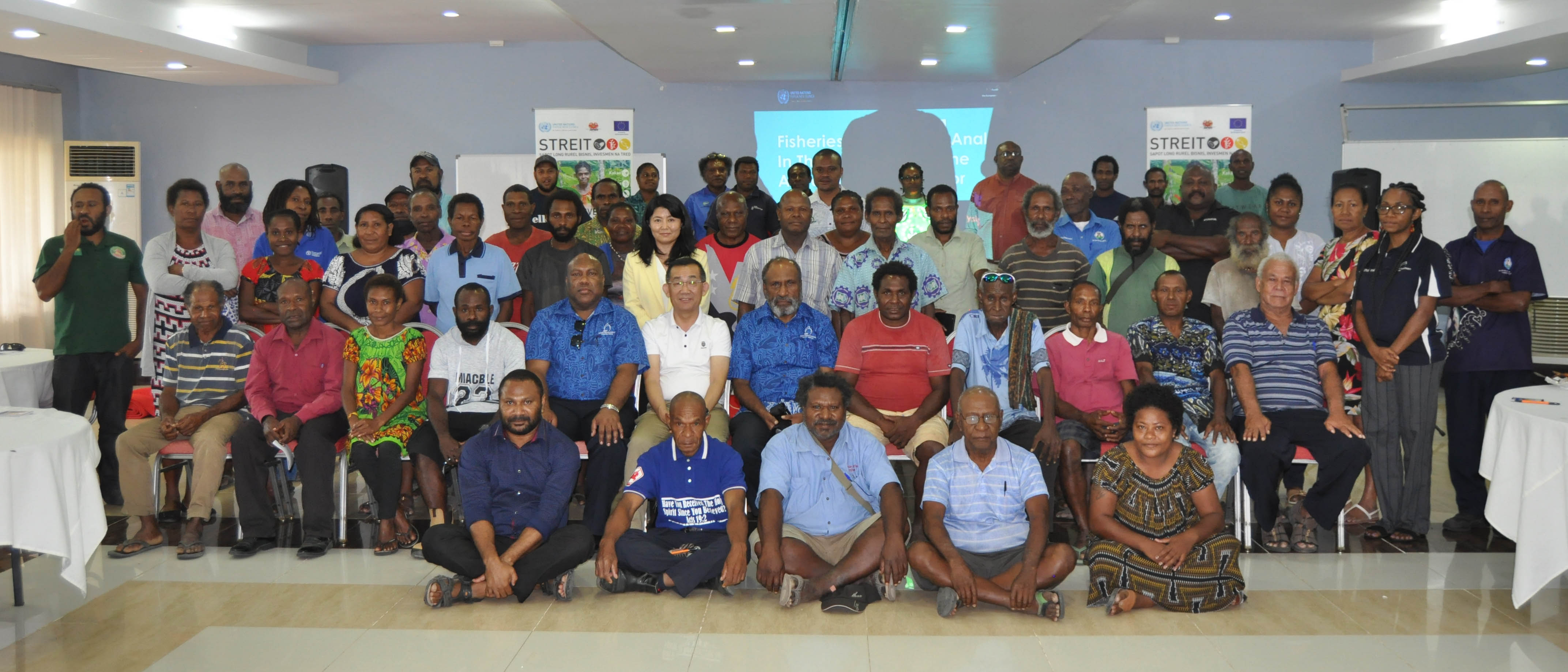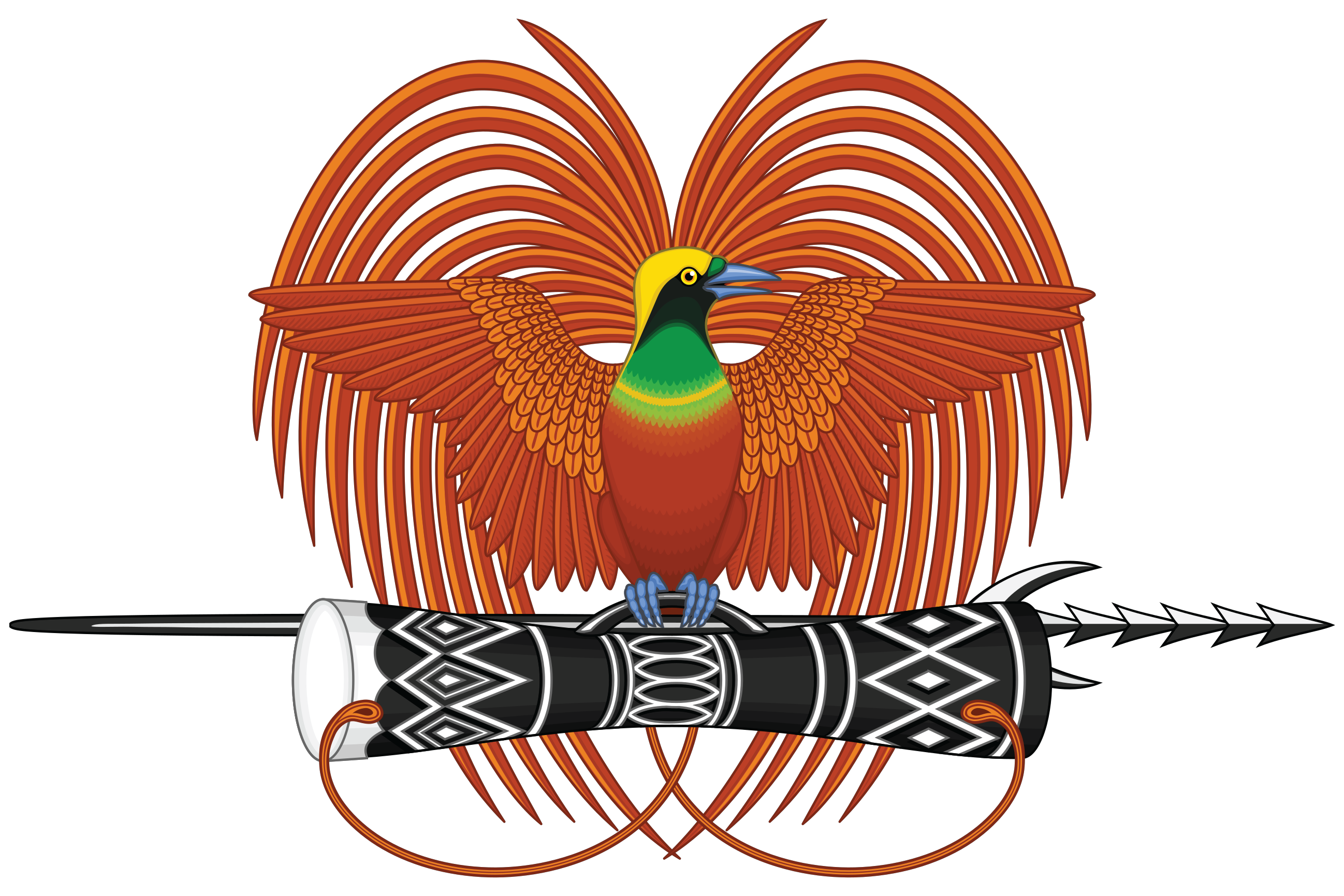Partnership with government agency to strengthen fisheries value chain in Papua New Guinea
U-STREIT PNG collaborates with National Fisheries Authority (NFA) to support sustainable development of the fisheries value chain in rural Papua New Guinea.

Stakeholders' representatives participated in the validation workshop of the PNG-NFA Fisheries Value Chain Analysis report
©FAO/STREIT
Wewak, Papua New Guinea - The Food and Agriculture Organization of the United Nations FAO), under the EU-STREIT PNG Programme is partnering with the National Fisheries Authority (NFA) to assist in the sustainable development of fisheries sector in the Sepik Region of Papua New Guinea.
Under this collaboration, a four-day stakeholders’ workshop was organized in Wewak, East Sepik Province, on 11th - 14th October 2022, to validate the results of a fisheries value chain study commissioned by the EU-STREIT PNG Programme to NFA and conducted between year 2020 and 2022 in the Sepik. The purpose of the study was to understand the challenges faced by key actors in the three fishery value chains (aquaculture, riverine and coastal) in the region to determine upgrading strategies and investment plans.
The workshop attracted over 60 participants who represented a wide spectrum of the fisheries sector stakeholders that includes the Department of Agriculture and Livestock, the Department of National Planning and Monitoring, local community fisher folks and cooperatives, and also the European Union Delegation in PNG. Also in attendance were the private sector, and non-governmental organizations.
The workshop discussed challenges in the fisheries value chain identified in the study and upgrading opportunities and strategies, investment options and implementation plans to improve the performance of the aquaculture, riverine and coastal fisheries during the duration of the Programme and beyond.
The last day of the workshop was dedicated to consultations between the key stakeholders only who identified some specific roles and responsibilities for immediate actions that will contribute to the development agenda under the EU-STREIT PNG Strategic Objectives and the National Fisheries Strategic Plan 2021–2030.
Some activities identified in the fisheries value chain study for upgrading the value chains include the provision of capacity development activities to improve the technical skills of fisheries extension officers and fishers and facilitation of supply of inputs including quality fingerlings, quality fish feed for fishers to improve quality of fishes.
Moreover, the lack of collective action by value chain actors under coastal and riverine fisheries coupled with insufficient support from key government agencies at the National, Provincial, District and Local Level Government was highlighted as a key constraint which negatively affects the fisheries sector in the Sepik Region and PNG as a whole. Addressing these issues collaboratively may unveil the industries potential to venture into agribusiness as an income generating option for the people.
The key priorities discussed and proposed in the workshop will be captured in an existing Memorandum of Agreement between NFA and the East Sepik and Sandaun Provincial Governments’ and the review of the 5 years Provincial Integrated Development Plans under the National Government’s Medium Term Development Plan III logical framework through the Department of National Planning and Monitoring.
“We are particularly interested in the vision, upgrading strategy, implementation plans and investment plans for the three fisheries value chains that came out of this value chains study,” said the EU-STREIT PNG Programme Coordinator Dr Xuebing Sun in his opening remarks.
The Executive Manager of Aquaculture and Inland Fisheries Unit of NFA, Mr Jacob Wani while expressing his appreciation of this partnership forged with EU-STREIT PNG for conducting the fisheries value chain study in the Sepik. He announced that NFA intends to replicate the value chain study in other regions of the country as NFA is now equipped with the fisheries value chain methodology and tools transferred via technical advisory of the EU-STREIT PNG.
The fisheries sector plays an important role in ensuring good nutrition of the people in the Sepik and it is one of three value chains supported under this rural agriculture development programme.
The EU-STREIT PNG, being implemented as a UN Joint Programme (FAO as the leading agency/administrative agent, and ILO, ITU, UNCDF and UNDP as implementing partners), is the largest grant-funded Programme of the European Union in the country and the Pacific region. It focuses on increasing sustainable and inclusive economic development of rural areas through Increasing the economic returns and opportunities from cocoa, vanilla and fishery value chains and strengthening and improving the efficiency of value chain enablers including the business environment and supporting sustainable, climate-proof transport and energy infrastructure development.
Contact
Amir Khaleghiyan International Reporting and Communication Officer +675 8175 3146 [email protected]



